
What is the problem?
Roman is a resettler from Kharkiv. He is 28. Now he has been working in IT for the third year, and before that, he was engaged in hairdressing for about five years. He often combined the new, and now the main, job with the past one on weekends.
Full-scale war made us all volunteers. Once every few weeks, Roman asks about his father, who is fighting, and if he or his comrades need anything. He constantly thanks and repeats, "with your help, it is easier to fight."
"If people make patriotic tattoos, crafts, or any other things, which let them give part of the funds to the Armed Forces, then it is very valuable. And definitely better than nothing. Showing what you do and why is also important. It can encourage others to be considerate as well. Only together will we win," Roman says.
What is the solution?
At the beginning of March, Roman moved from Kharkiv to Truskavets in the Lviv region. When he left, he did not take any of his tools — he did not think that doing haircuts and creating hairstyles would be appropriate.
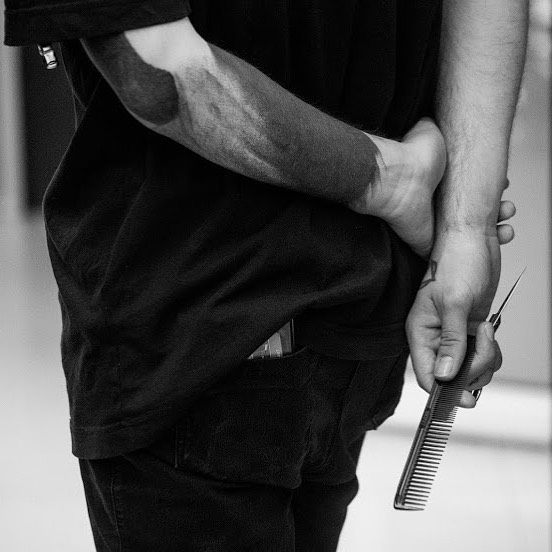
Over time, getting used to the new city and conditions, clients who moved from Kharkiv to Lviv offered Roman to cut their hair. They promised that all those willing would gather for this on one day. At the same time, Roman wanted to be useful, and at the end of April, with his colleague Vitaly, who also lived in Truskavets then, decided to transfer the money earned from haircuts in Lviv to one or another fund. The hairdressers rented a place at their own expense and started booking appointments. Roman received his working tools by mail.
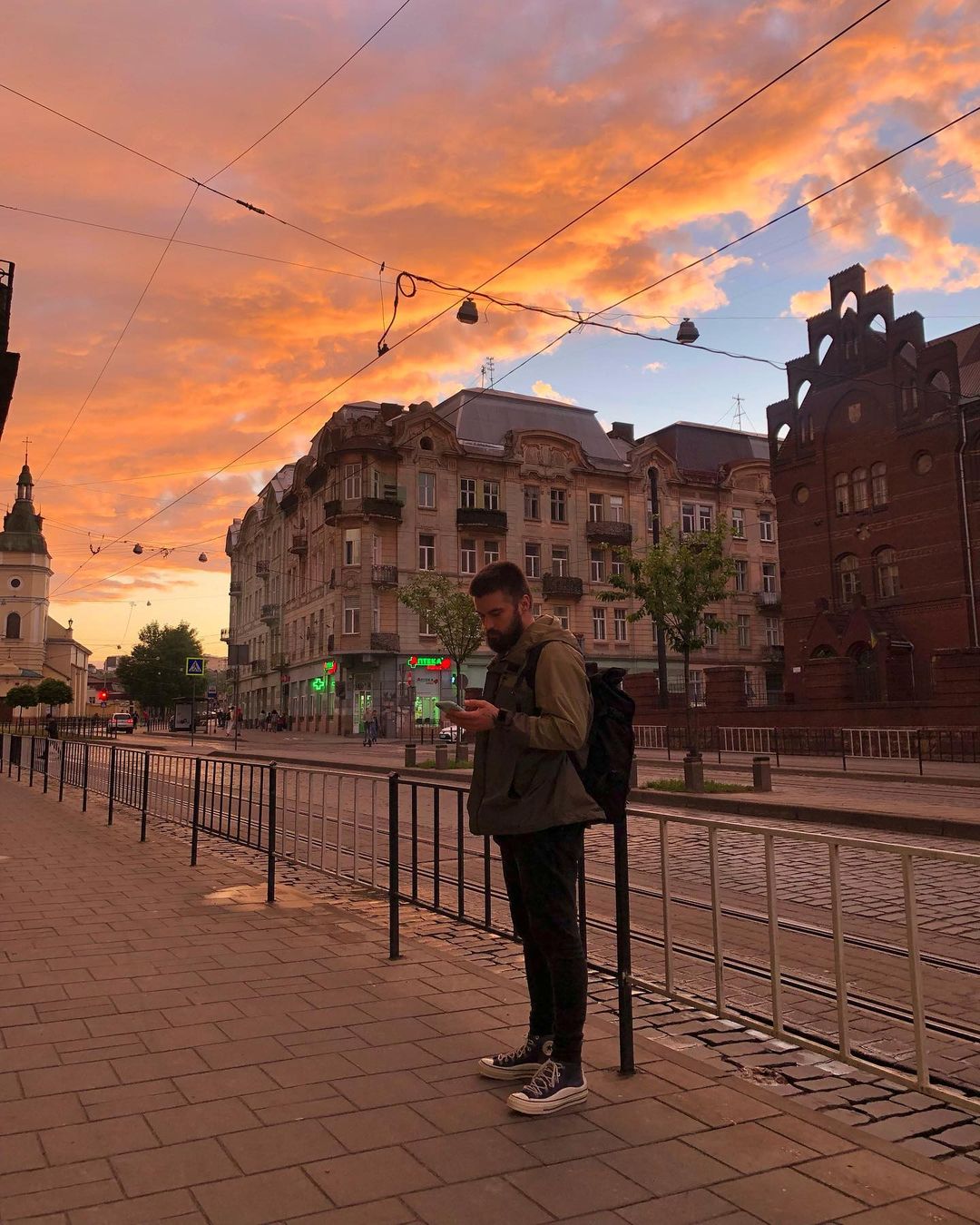
"What we can do for the victory is to make the work of the Armed Forces easier. I am convinced that this is the only thing that can stop russia. And that is why our task is to help. Despite everything, I decided that everything must be given. You start understanding that you mustn't grudge anything for the victory. Neither yourself, nor time, nor resources. Because it is important."
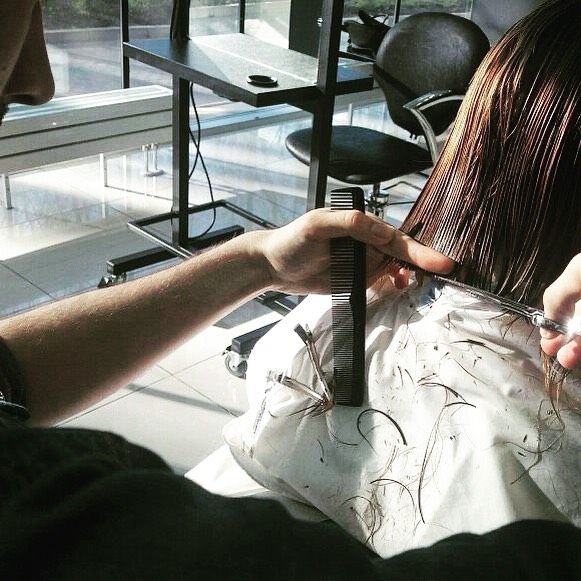
Hairdressers donate the money they earn to various fundraisers. Most often — for their acquaintances' fundraisers. A colleague in Roman's company often goes to the front lines as a volunteer. She collects funds for the 93rd "Kholodny Yar" brigade and has fundraised for a sniper rifle for a Donetsk airport veteran. He also contributed to the fundraisers of Yevhen Lira, writer and co-founder of the educational YouTube channel "Your Underground Humanitarian," dedicated to humanitarian sciences. The parents of Roman's girlfriend are also involved in the fundraisers. Recently, they went with aid to Izyum and Balaklia.
Does it really work?
Roman came to Lviv when there were appointments. And so, for eight work trips to Lviv, they received UAH 50,000, which they transferred to volunteers.
Now Roman is in Kyiv, where he moved in September. Now he does haircuts for donations alone. Receiving money from his main job, he decided to give everything he earned by doing haircuts to the Armed Forces' needs until the war's end. He also rents premises here, and when there is an appointment, most often on weekends, he comes to cut hair.
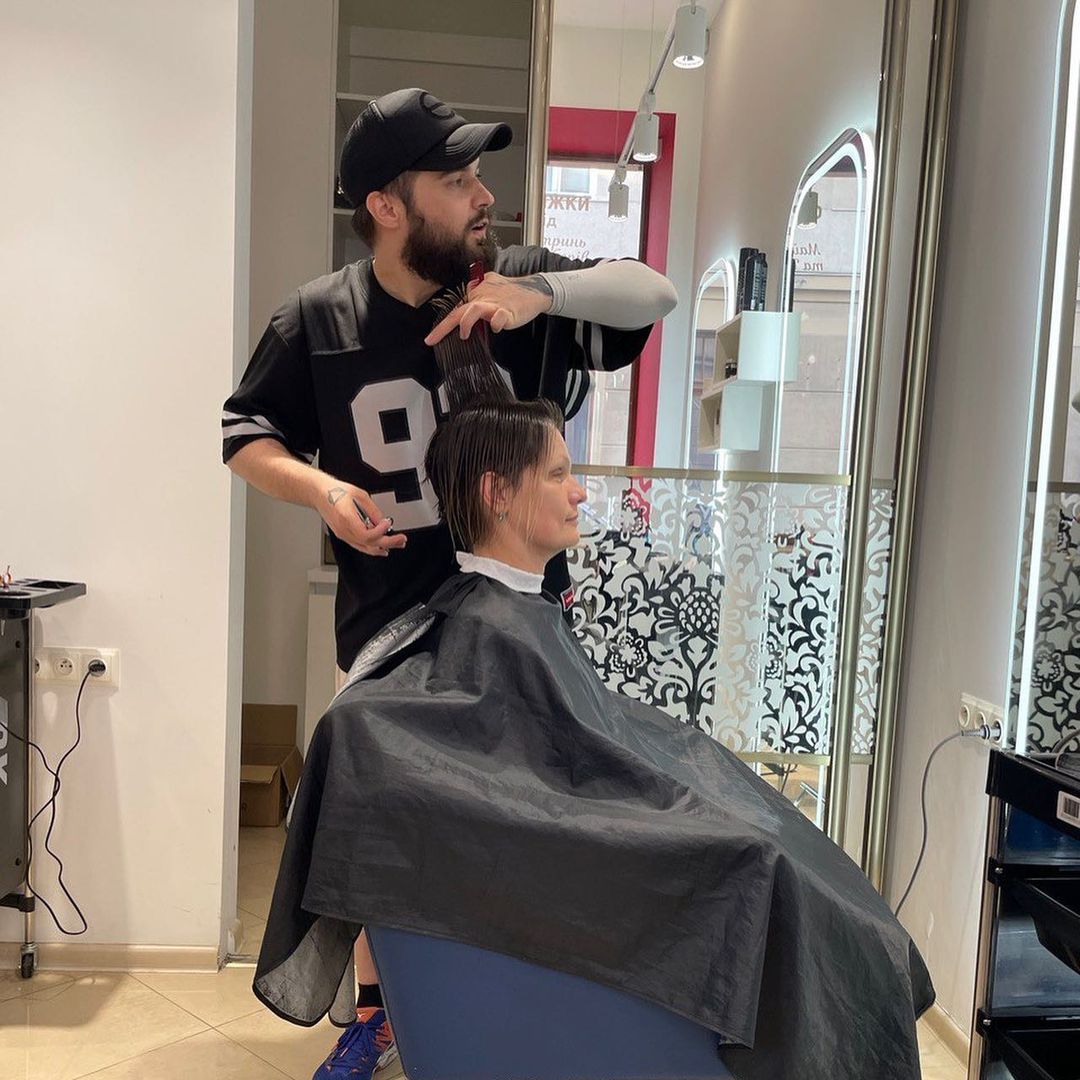
Clients who know Roman and used to visit him in Kharkiv now find themselves in different cities. Therefore, renting a workplace, even once every few weeks, isn't easy to find people who would sign up for a haircut for a donation. There is not always a line to him, although, as Roman says, he would do it every Saturday and every Sunday.
And yet, people do find the initiative — through his social networks, Instagram and Twitter. If several people have signed up, Roman rents space in the salon and actively advertises open registration for that day. Friends and acquaintances repost such ads, which also helps to find more customers.
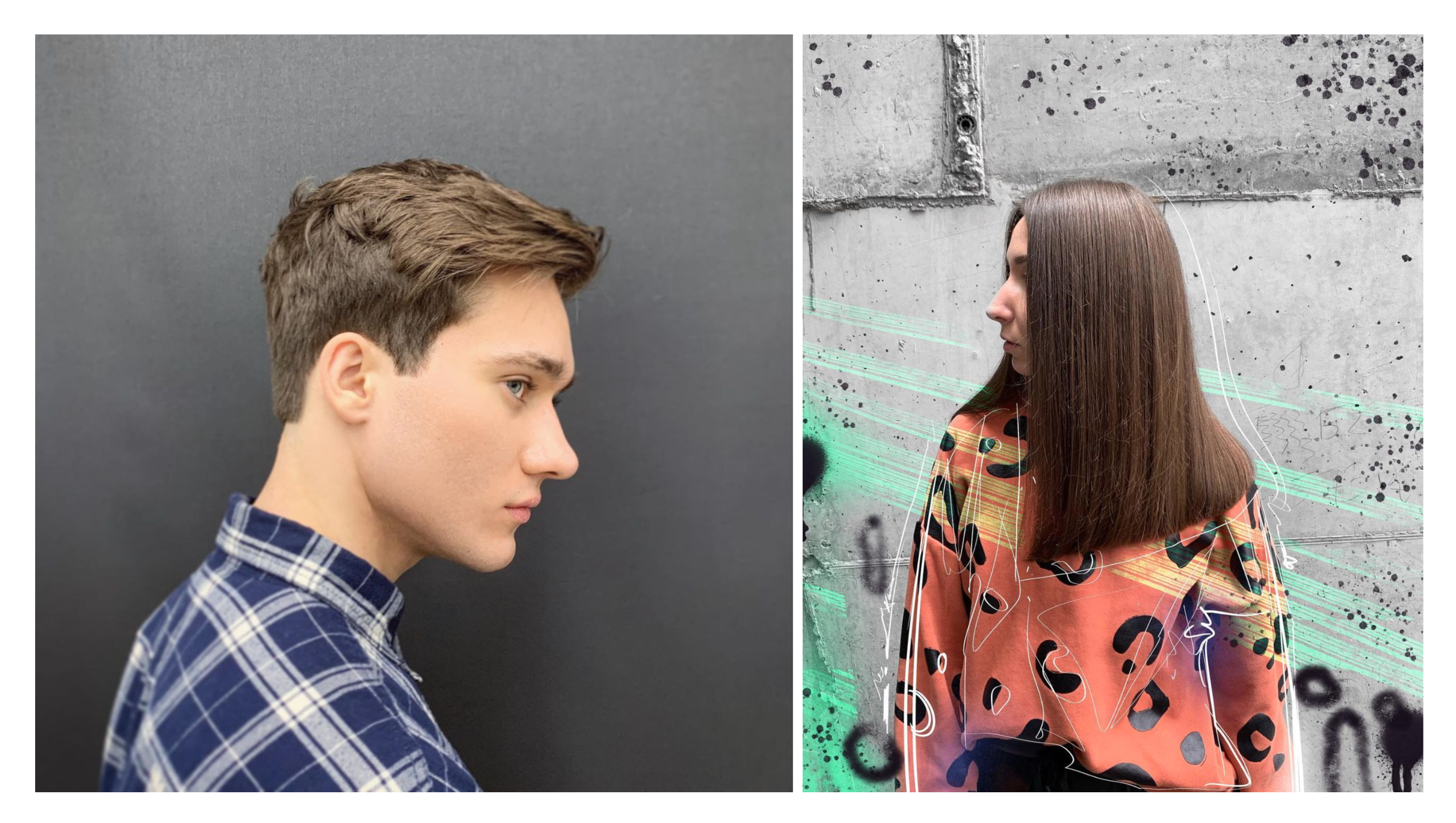
Often in barber chairs, people also share their wartime stories.
"Such conversations unite and reinforce the idea that we are united in the face of the threat that is before us," says the volunteer.
Roman's haircut costs UAH 600, but people sometimes pay twice or even three times more. The largest donation Roman received for a haircut was UAH 5,000. Then in a day, Roman could transfer UAH 11,000 to the army's needs. Usually, Roman collects from 4,000 to 7,000 hryvnias per working day.
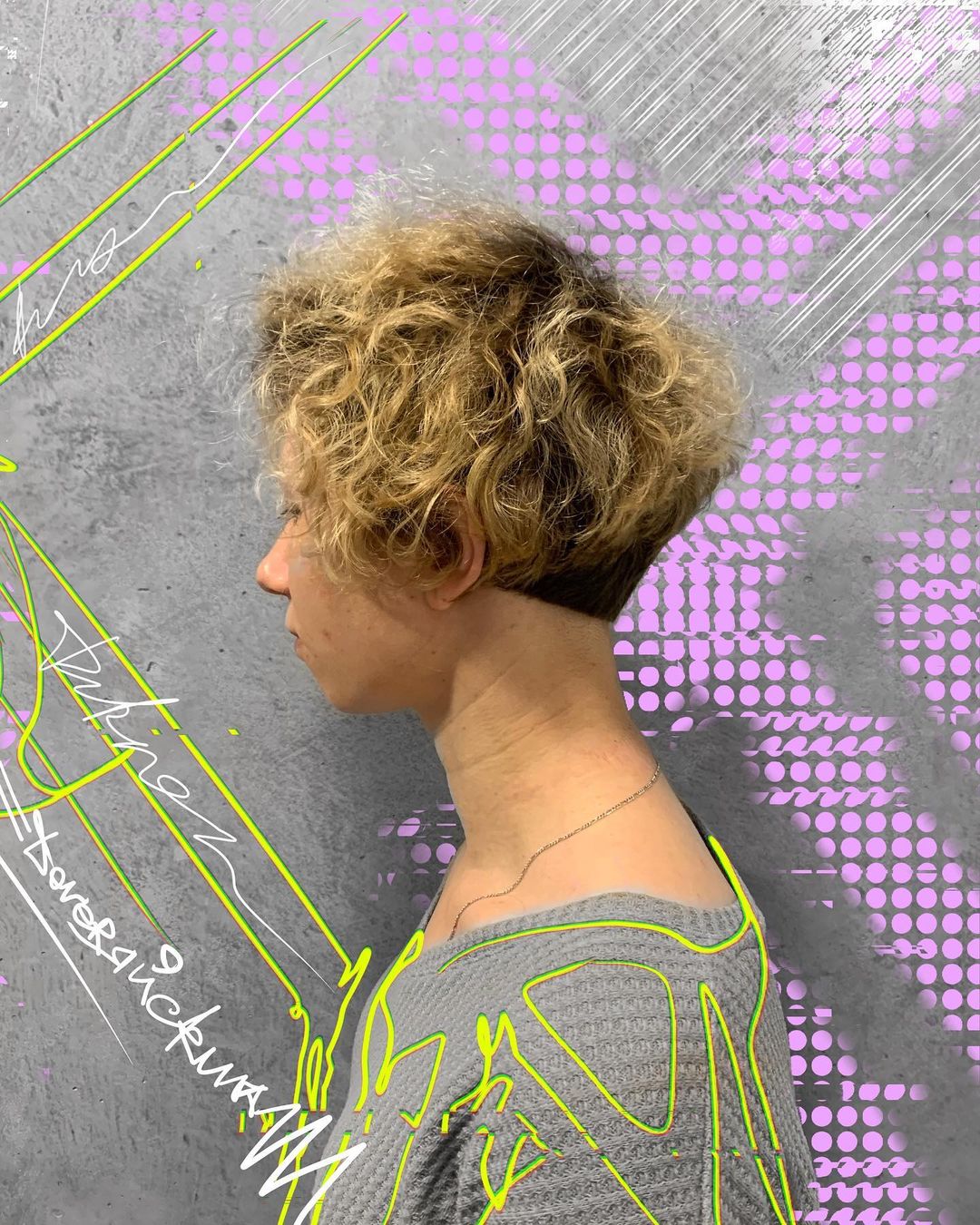
"People have begun donating less but haven't started using services less. Everyone is just as willing to pay more for a haircut, knowing it will help. I provide services that people need. Therefore, since the beginning of this initiative, the number of people has not decreased. When people understand that they can get a haircut and be useful simultaneously, it motivates them to help more."
How can everyone help?
The main thing is not to be indifferent. Roman is convinced that this is the only way we bring benefit.
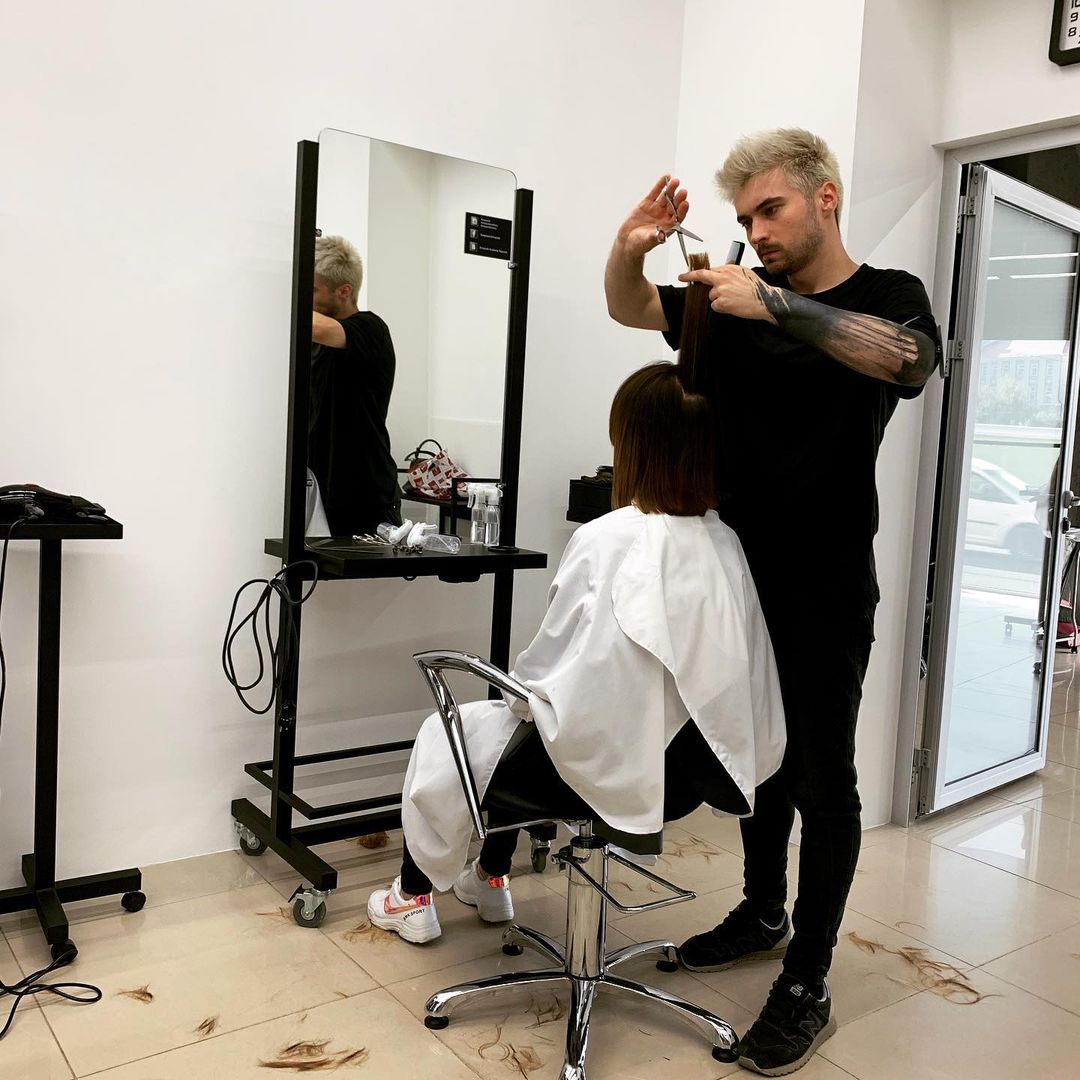
"You should search and ask. If you can't help with money, you can donate blood, weave nets, or send humanitarian aid. Every city has volunteer centers or organizations. I am sure that you can definitely find people who do this. And you can ask them about what you can do to help. You can help those people who are currently fighting because almost everyone has someone who is at the front.
My issues were also solved thanks to networking. Friends helped spread the posts where I wrote about free spots for haircuts; they also responded to help find a salon for rent."
Receive a haircut and help the Armed Forces
"After the victory, we will come out completely different. We will emerge as a single community with few indifferent people, where everyone is united, without division into Easterners and Westerners but with the awareness that we are all Ukrainians."
To make an appointment with Roman and get a haircut for a donation to the army, you can write to him on Instagram.






